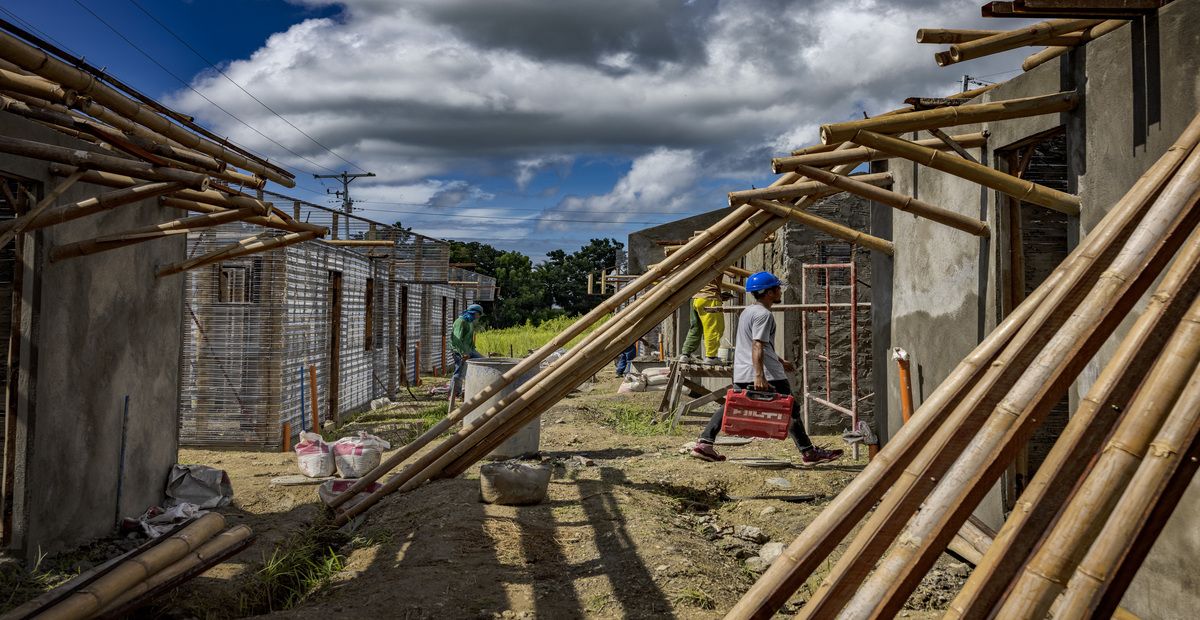
Bamboo as a Construction Material in Earthquake-Prone Areas
Bamboo is a natural material used for construction in many countries, especially in Asia, where it is mostly abundant. It is a sustainable construction material that has less carbon footprint. It proliferates and can be harvested without destroying the plant, making it an excellent choice for environmentally conscious construction.
However, the question arises about whether bamboo is a safe building material during earthquakes and other natural calamities. Severe shaking caused by earthquakes can cause the collapse of buildings made of various materials. Therefore, assessing whether bamboo can withstand significant shaking without compromising a building’s structural integrity is essential. In this article, we will explore the properties of bamboo and its advantages as a construction material in regions prone to seismic activity.
Bamboo’s Strength
Bamboo when mature, can exhibit strong mechanical properties in compression and tension, making it a durable and resilient material capable of enduring high loads and pressure. According to a study, Bamboo is known for its ability to resist tension more than compression due to its highly elastic fibers, which have a high tensile strength. Bamboo fiber’s tensile strength is higher than steel, with axial parallel fibers having a tensile strength of up to 400 N/mm2. This makes bamboo fiber superior to solid wood fibers, which can only resist tension up to 50 N/mm2. With proper construction methods and by applying the correct treatment process, bamboo should continue to be considered a viable option for sustainable construction in earthquake-prone areas where buildings must withstand strong ground motions.
Bamboo’s Flexibility
One of the main advantages of using bamboo as a sustainable construction material is its flexibility. A study shows that the results of the flexural bending test indicate that bamboo can revert to its original form after the load is removed. This makes it a suitable material for structural construction and can help prevent damage to buildings during natural disasters such as earthquakes and hurricanes. The resilience of bamboo was also demonstrated during the 7.8 magnitude earthquake that struck Ecuador on April 16, 2015. In an article published by the International Bamboo and Rattan Organization, approximately 7,000 buildings, including many concrete homes and schools were destroyed in the earthquake. However, many structures made of bamboo withstood the earthquake and remained standing. Bamboo’s flexibility and resilience can help reduce the impact of seismic activity on buildings, making it a sustainable and cost-effective solution for building structures.
Bamboo’s Durability
Bamboo is a durable alternative construction material. In a comparative analysis conducted, the strength-to-weight ratio of bamboo is greater than that of numerous conventional building materials, such as steel and concrete. This characteristic of bamboo makes it an ideal choice for construction that requires a lightweight material with exceptional strength.
Bamboo’s Potential as a Safe Construction Material in Earthquakes
Based on the above properties, bamboo shows a great potential as a safe and sustainable construction material in earthquake-prone areas. However, people must consider the proper selection of bamboo species, the quality of the bamboo, and appropriate construction techniques to ensure the safety and durability of the structure on seismic events. It is crucial to work with experts in bamboo construction and earthquake-resistant building design to ensure the safety and longevity of the structure.
Collaborating with organizations like Base, who deeply understand bamboo-based and alternative building technologies can help ensure that a structure is designed and constructed with resistance to natural disasters. By prioritizing safety and durability, it is possible to build sustainable housing that can withstand the test of time.
Base Bahay Foundation, Inc (BASE) is the pioneer of Cement-Bamboo Framework in the Philippines. BASE builds affordable and disaster-resilient structures using bamboo-based technology. Through continuous research in the Base Innovation Center (BIC), BASE is optimizing the technology and looking for new applications outside its standard model. BASE also offers training courses under its Bamboo Academy program to share the alternative building technologies and provide further knowledge on bamboo construction. Learn more about BASE projects and initiatives!
Alternative Building Technologies, Cement Bamboo Frame Technology, Sustainable Housing